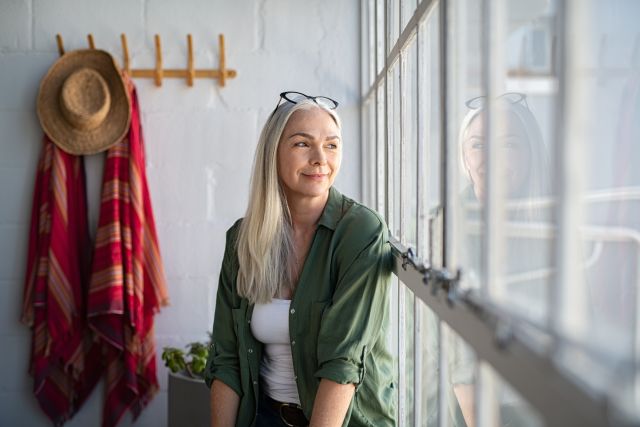Updated on January 31, 2025.
Finding effective treatment for a mental health issue can be a challenge. It can be even more complicated when you have trouble accessing in-person care. Sometimes, this is because having depression, anxiety, or another mental health disorder makes it difficult to leave home. Other reasons may include:
- Lack of local services or specialists
- Transportation issues
- Mobility problems
- A chronic disease or other health condition
- Scheduling conflicts or lack of time
That’s where telehealth can help. Instead of going to a physical office, it lets you interact with a psychiatrist, counselor, or other mental health specialist via phone, video, text, email, or through an online portal. It’s an effective solution for people who aren’t able to get live mental health care, or who simply want a more convenient way to access treatment.
Here's what to know.
Connecting through telehealth
Though it existed beforehand, telehealth’s popularity skyrocketed during the COVID pandemic, when many people were confined to their homes for long periods of time. Today, it’s used to treat a wide range of mental health issues including depression, anxiety, post-traumatic stress disorder (PTSD), eating disorders, and substance use disorder.
Telehealth can be helpful for:
- Therapy, including one-on-one, group, and text therapy
- Accessing and monitoring medication
- Screening for conditions like anxiety and depression
- Monitoring symptoms of mental health disorders
- Providing referrals to other specialists
If you currently see a therapist or other mental health care professional, you may want to ask if they offer telehealth services. If you’re looking for a new therapist, check first with your health insurance plan to see if they offer their own telemedicine services or if they partner with other companies.
The cost of telehealth depends on your provider and your insurance plan. Medicare generally covers telehealth. Medicaid’s coverage may depend on your home state. If you don’t have coverage, a local health center may be able to help you find treatment.
Managing telehealth appointments
While many people regularly use telehealth for a variety of health issues, it’s still fairly new compared to conventional, in-person services. Initial appointments may take some adjustment.
“Telemedicine can feel very similar to regular visits that are done in person, and people tend to get more comfortable with telemedicine after the first few visits,” says Jena Lee, MD, a psychiatrist at the David Geffen School of Medicine at UCLA in Los Angeles.
Dr. Lee says to plan for some technical difficulties and “ensure extra time, if possible” for the initial appointments. You may also want to do the following.
- Choose a quiet and comfortable space for your appointment.
- Double-check your technology beforehand, including battery life, camera, sound, and internet access.
- Compile a document with basic medical information, including height, weight, health conditions, and current medications.
- Create a list of questions to ask your provider or issues you’d like to bring up.
Remember that whatever you say during your appointment is private and secure. Just like an in-person visit, it remains between you and your provider unless you give permission for it to be shared.
Other ways to support mental health at home
In addition to telehealth, these strategies can help you manage your mental well-being.
Don’t change your medication on your own
If you are on medication to treat your anxiety or depression, don’t make any changes by yourself, even if you feel like your current regimen isn’t working. Instead, contact your HCP or therapist to talk about how you’re feeling. They may then recommend a different dosage or type of medication.
Schedule a productive worry time
Set aside a block of time every day—at the same time daily—to let yourself worry. “Spend time with a paper and pen worrying about everything in a prescribed amount of time and problem solve around it,” says Elissa Kozlov, PhD, an assistant professor at the Rutgers School of Public Health in New Jersey. She recommends a half hour for this.
Forcing yourself to worry may seem counterintuitive, but, Kozlov says, doing it in this way puts boundaries on it.
“At the end, you say ‘okay it’s time to do something else and tomorrow I’ll have another 30 minutes,’” she says. “If later in the day, you start to worry about something, you can quickly jot it down and tomorrow, during my prescribed worry time, I’ll sort it out.”
Practice mindfulness and meditation
Mindfulness and meditation can help train your brain to stay in the present versus spinning out of control. “Mindfulness helps you practice being in the moment,” says Richa Bhatia, MD, a child, adolescent and adult psychiatrist and member of the Anxiety and Depression Association of America.
If you’ve never practiced mindfulness, there are many apps that can help you get started and may even offer free services. Kozlov recommends free apps created by the U.S. Department of Veterans Affairs, which are available at www.mentalhealthapps.org. There are also plenty of guided meditations on YouTube and music streaming services.
Stay connected, digitally
It’s important to stay connected with others who can provide support. Video chatting and conferencing can help. You can also use social media, email, or the phone to reach out to family and friends.
You may want to seek out support groups for people diagnosed with the same mental illness, as well. Many groups are available online. The Anxiety and Depression Association of America has a list on their website.
Call for help
If you feel like you may harm yourself or others, seek help right away. Try 911 or call, text, or chat 988 to reach the 988 Suicide and Crisis Lifeline, where help is available 24/7.







